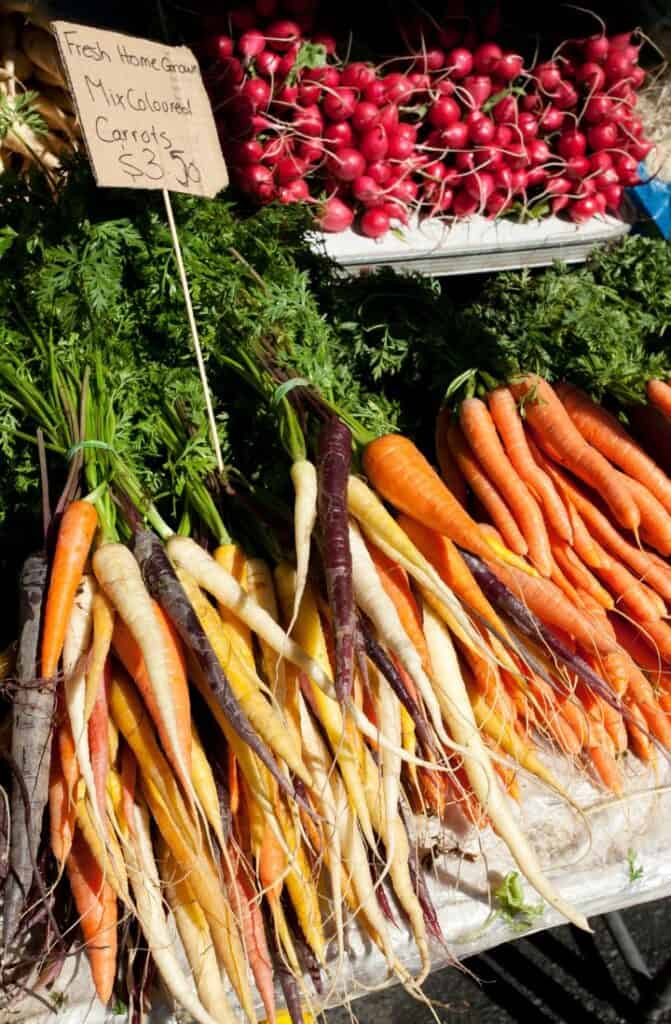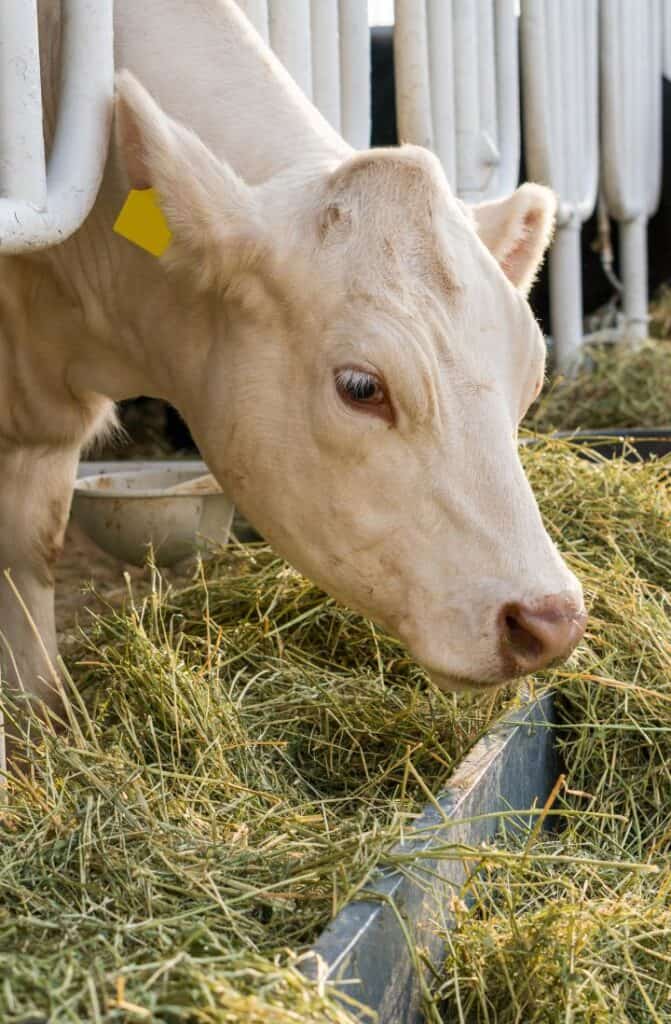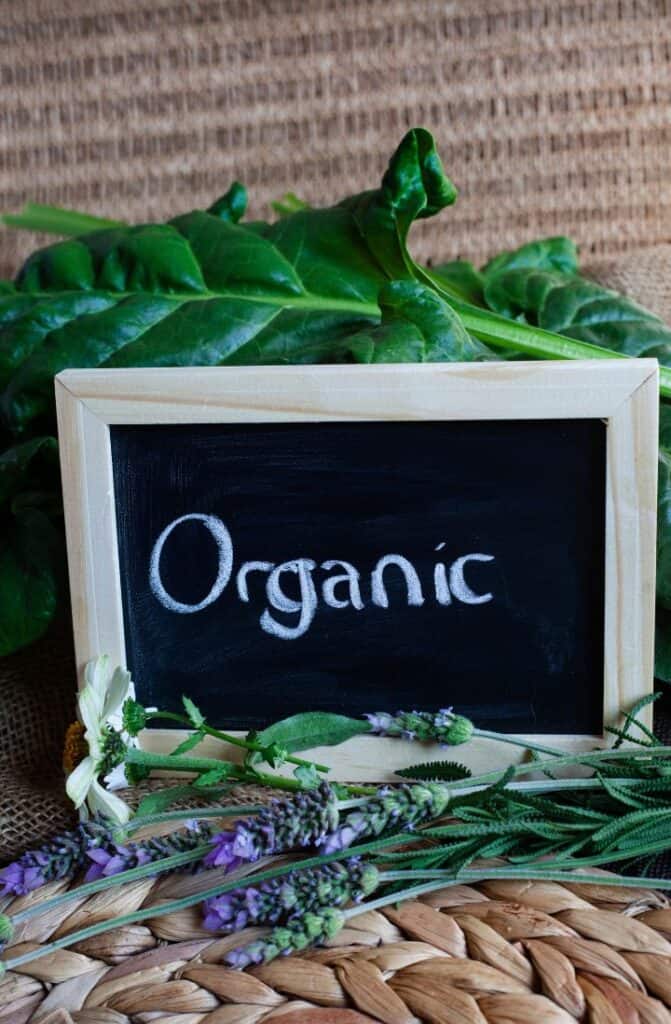Discover the distinctions between organic vs non-organic foods and make informed choices. Explore the differences in farming practices, nutritional content, and potential health and environmental impacts. This wealth of information will provide you with valuable insights so you can confidently navigate the world of organic and non-organic foods.
What's the Difference Between Organic Vs. Non-Organic Foods?
Organic foods such as fruits, vegetables, and grains are grown and produced without the use of synthetic chemicals, such as pesticides, herbicides, and fertilizers. When fruits and vegetables are grown on organic farms, the practices they use prioritize using natural methods to enhance soil fertility and control pests. The product is referred to as organic produce.
Growing food organically includes things like crop rotation, composting, and biological pest control. Organic foods are also produced without the use of genetically modified organisms (GMOs) or irradiation and do not have preservatives that are added to keep the products fresh longer.
Now let’s talk about non-organic foods. These foods are also known as conventional, and growing them involves using synthetic chemicals to control pests, promote growth, and enhance crop yields. When foods are grown on conventional farms, chemical pesticides, herbicides, and synthetic fertilizers may be used to manage the crops.
There are also organic meat and dairy products. These products come from animals that have been raised on farms without the use of hormones and antibiotics.
As mentioned earlier, Genetically modified organisms (GMOs) and irradiation are not used on organic farms. However, they may be employed in non-organic food production.
The key difference between organic and non-organic foods lies in farming methods and the substances used during cultivation. Organic foods prioritize natural and sustainable practices, while non-organic foods rely on synthetic chemicals and conventional farming techniques.

What is Organic Food?
Most people have heard of organic food, but many do not know exactly what it means for food to be organic. Organic food is characterized by its commitment to sustainable farming practices that prioritize soil health, ecosystems, and consumers.
Growing Organic Food
When food is grown on an organic farm, that means that the farmers focus on nurturing soil fertility through methods like crop rotation, composting, and the use of organic matter. They rely on natural pest management strategies, such as beneficial insects and physical barriers, rather than synthetic pesticides.
Think about apples, peaches, and nectarines from trees in an orchard. These fruits often get worms and other insects that destroy them, so farmers on non-organic farms will use pesticides to deter the pests. On an organic farm, that is not a practice that is used, which can mean that there are fewer crops that they can sell from their harvests than in non-organic farm harvests.
Organic farms also focus on using natural fertilizers like mulch, which includes compost and manure, rather than mulch, which contains chemical fertilizers. This is the type of soil in which things like corn, strawberries, spinach, tomatoes, and cabbage are likely to be planted. While the idea of your food being grown in manure may be off-putting, it is not harmful and helps crops to grow full and flavorful.
Organic foods are required to meet certain regulations and certifications and typically has organic labels so you can differentiate between the two. You have probably seen labels that say “certified organic”.
Regulations and certifications vary by country but typically involve rigorous standards and regular inspections to ensure compliance. Organic certification guarantees consumers that the products labeled "organic" meet the required criteria. The united states department of agriculture or USDA, determines these criteria in the United States.
Health and Environmental Benefits of Organic Food
Many people believe that organic food has potential health benefits. It is believed to have higher nutrient content and fewer pesticide residues than non-organic counterparts, which appeals to people who want to control what goes into their bodies. These people often search for organic ingredients when doing their grocery shopping and may also avoid things like artificial sweeteners and other food additives.
Organic farming practices also focus on minimizing their environmental impact by reducing pollution, conserving water and energy, and promoting biodiversity. These are all things that are important to people who feel strongly about having a positive impact on the environment.
Why Do People Choose Organic Food?
Consumers who choose organic foods tend to value the avoidance of synthetic chemicals, GMOs, and the potential environmental and health risks associated with them. They also appreciate the ethical considerations associated with organic farming, including animal welfare and supporting sustainable agricultural practices.
Many people are concerned with a holistic approach to agriculture which organic farming supports. Farms that produce food organically consider the interconnectedness of the environment, human health, and sustainable food production.
By choosing organic, consumers can support a system that promotes ecological balance, soil health, and the long-term well-being of both people and the planet.

What are Non-Organic Foods?
Non-organic foods, also known as conventional foods, refer to agricultural products that are produced using traditional farming methods. These methods may include the use of synthetic chemicals, such as pesticides, herbicides, and fertilizers. These farming practices are different from organic farming methods in a variety of ways.
Growing Non-Organic Foods
Conventional farming practices are known for the utilization of synthetic chemicals, which are used to control pests, manage weeds, and enhance crop yields. These farmers apply chemical pesticides to protect their crops from insects and diseases. These farmers also may use herbicides to control the growth of weeds around their products, and synthetic fertilizers are employed to provide necessary nutrients to the soil. Genetic modification and irradiation may also be utilized in non-organic food production, which many people try to avoid.
Unlike organic farming, conventional farming methods do not prioritize the use of natural approaches, such as crop rotation, composting, or biological pest control. Instead, they rely on the use of synthetic chemicals to address various agricultural challenges.
While this may be a turn-off for many people, the reality is that it is hard to meet the demand of today’s population using only natural growing methods.
Why Do People Choose Non-Organic Food?
The aim of non-organic farming is primarily to maximize crop yields and profitability by using methods that are often more efficient and cost-effective in the short term. However, these practices can have potential environmental and health implications.
Even though using synthetic means to produce more crops is not ideal, doing this can make crops more affordable for everyday households. Having affordable food options for people of all income levels is important as well.
It is important to note that non-organic foods still undergo regulations and standards regarding food safety. There are still some guidelines to ensure that the crops that go out to people are safe even when grown in an affordable way.
Even though conventional farming allows the use of synthetic chemicals and genetically modified organisms (GMOs) that are restricted in organic farming, it is not a total free for all. Consumers who choose non-organic foods may prioritize factors such as affordability and availability or may not have specific concerns regarding synthetic chemicals or GMOs.

Key Differences Between Organic and Non-Organic Foods
Farming Methods
Organic foods are produced through organic farming practices emphasising natural and sustainable methods. They also focus on biodiversity conservation and ecological balance. On the other hand, non-organic foods are grown using conventional farming methods that rely on synthetic chemicals, such as pesticides, herbicides, and synthetic fertilizers, to maximize crop yields. Non-organic farming practices typically do not prioritize natural soil and crop management approaches.
Regulations and Certifications
The production and labeling of organic foods are regulated by government bodies, ensuring adherence to strict standards in organic farming practices. Organic certification involves regular inspections to maintain compliance. However, non-organic food production is also regulated for food safety and quality, but these regulations may permit the use of synthetic chemicals and genetically modified organisms that are restricted in organic farming.
Nutritional Differences
The nutritional differences between organic and non-organic foods are still a matter of ongoing debate. Many people believe that the chemicals used in conventional farming may cause long-term health issues such as cancers and chronic illnesses.
Some studies suggest that organic foods may contain higher levels of certain nutrients and antioxidants compared to non-organic foods. There is not much research on this, and there is no strong proof that this is always true.
Food nutrient levels can be influenced by factors like crop variety, growing conditions, soil quality, and post-harvest handling. While organic farming practices aim to improve soil health, it does not guarantee consistent nutritional superiority in all organic products.

Takeaways
There is a lot that people do not know about the differences between organic and non-organic farming. Organic and non-organic foods differ in various aspects, and some of those differences make or break for some people because of their health and environmental concerns and values.
Organic farming prioritizes natural and sustainable practices, while non-organic farming relies on synthetic chemicals for crop management and may have different regulations regarding the use of these chemicals.
Ultimately, the choice between organic and non-organic foods depends on personal preferences, health concerns, and the importance placed on environmental sustainability.



Comments
No Comments